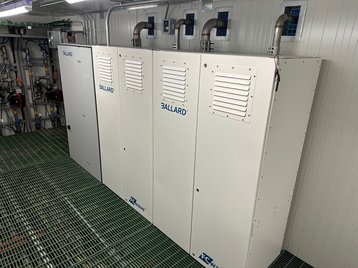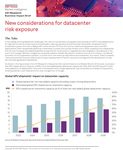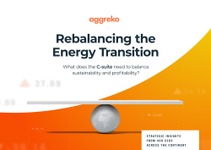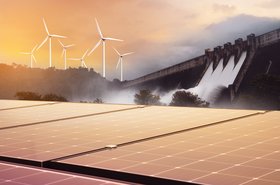Vertiv has partnered with fuel cell firm Ballard Power Systems to integrate fuel cells into uninterruptible power supply (UPS) systems.
The companies this week entered into a strategic technology partnership, with a focus on backup power applications for data centers and critical infrastructures, scalable from 200kW to multiple megawatts.
Vertiv has integrated Ballard hydrogen fuel cell power modules with a Vertiv Liebert EXL S1 UPS, within a successfully demonstrated proof of concept (POC) at Vertiv’s facility in Ohio.
The POC deployment in Delaware integrated two Ballard PowerGen 200kW fuel cell cabinets, which power the backup system, into Vertiv’s Power Module H2 solution, which includes a 1MW AC Solar PV array and Vertiv DynaFlex Battery Energy Storage System (BESS).
The companies said the initial validations and tests have demonstrated the successful operation of zero GHG emission backup power integrated into an uninterruptible power architecture.
“As the soaring increase in data usage is driving up power demand and expansion of data center capacity globally, the need to effectively manage electricity consumption and the carbon footprint of this energy-intensive sector is critical to achieve net-zero targets,” said Nicolas Pocard, vice president marketing, and strategic partnerships, Ballard. “Ballard and Vertiv’s strategic partnership enables both parties to leverage our respective strengths to offer cost-effective, zero Green House Gas (GHG) emission fuel cell backup power solutions that are scalable to meet data centers growing power demands.”
Viktor Petik, vice president of Vertiv infrastructure solutions, added: “The successful fuel cell proof-of-concept with Ballard provides a viable option for customers strengthening their data center sustainability strategy, and those moving to a future-ready Bring Your Own Power (BYOP) model.”
Founded in 1979, Ballard offers PEM fuel cells to mobility and stationary power customers, including a number of stationary fuel cell solutions for power generation and backup power. Its FCwave offering is built in 200kW modules; scaling up to six modules (1.2MW DC) in a container with the option of DC/AC conversion and batteries using 5.5 sqm of floor space.







